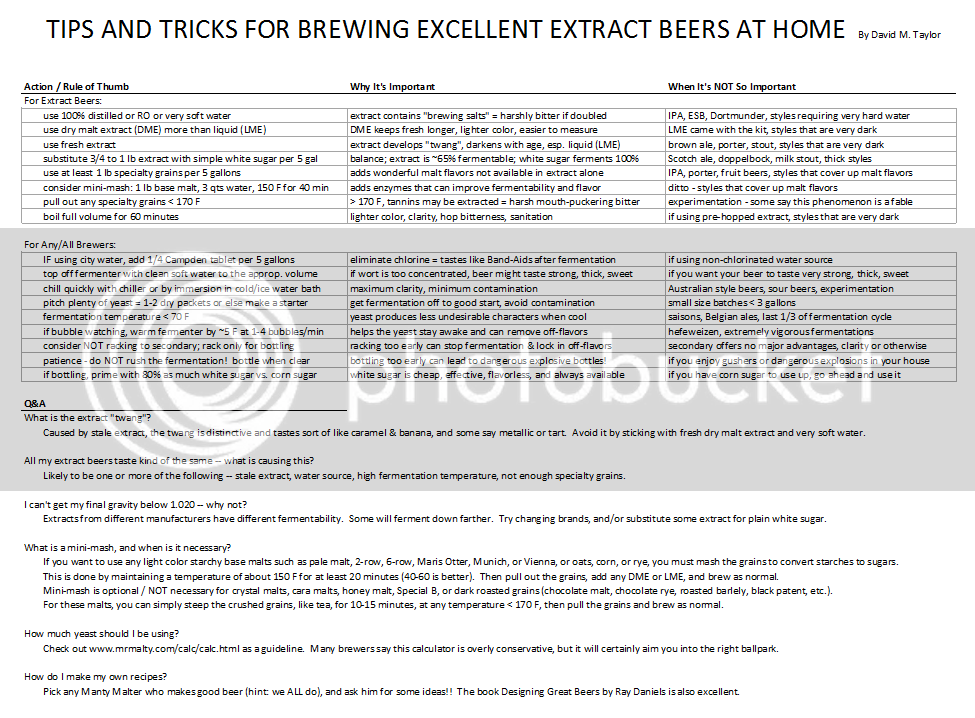saltybp
Member
Hi,
I have brewed up 4 extract with steeping grains recipes so far. (Stout, IPA, Red, and Wit). They are all different styles and tastes but they all seem to have a similar underlying taste. Its not a bad taste at all, I am happy with the beer, but I am wondering if it is a limitation of extract brewing. Am I being too picky? The red, IPA, and Wit are essentially the same color too. My next kit will be mini mash to see if there is a difference but I figured I would ask since that will not be for several months.
I have brewed up 4 extract with steeping grains recipes so far. (Stout, IPA, Red, and Wit). They are all different styles and tastes but they all seem to have a similar underlying taste. Its not a bad taste at all, I am happy with the beer, but I am wondering if it is a limitation of extract brewing. Am I being too picky? The red, IPA, and Wit are essentially the same color too. My next kit will be mini mash to see if there is a difference but I figured I would ask since that will not be for several months.






























![Craft A Brew - Safale S-04 Dry Yeast - Fermentis - English Ale Dry Yeast - For English and American Ales and Hard Apple Ciders - Ingredients for Home Brewing - Beer Making Supplies - [1 Pack]](https://m.media-amazon.com/images/I/41fVGNh6JfL._SL500_.jpg)




























